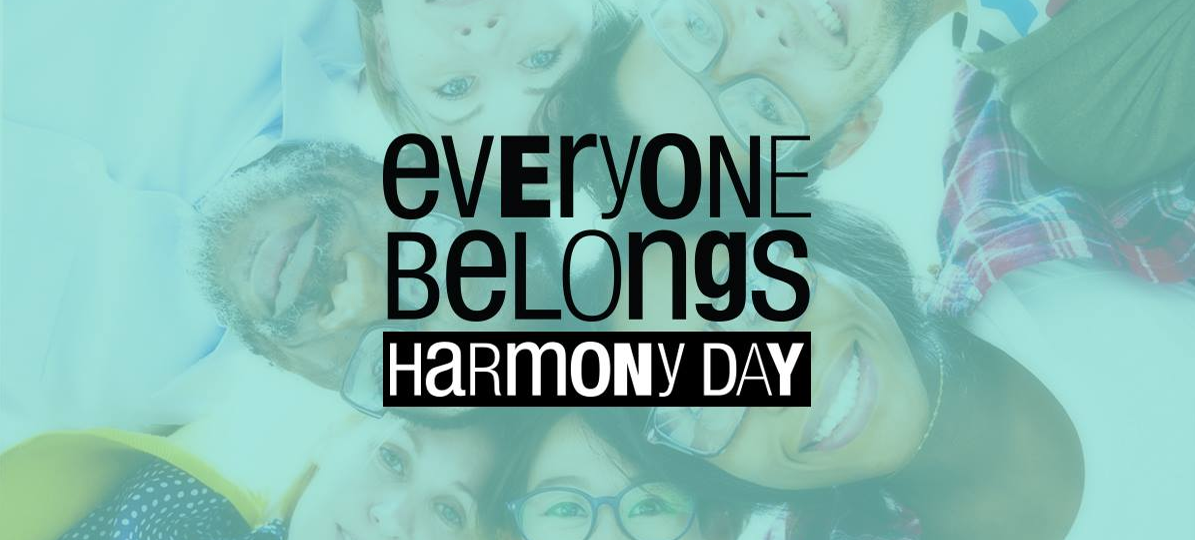Harmony Day, which coincides with the UN International Day for Elimination of Racial Discrimination, is a chance to celebrate cultural and religious diversity. We talk about why it matters, and what Macquarie’s researchers are doing to promote harmony, tolerance, and a sense of belonging.
Everyone belongs is the message for Harmony Day today. With around 45 percent of Australians born overseas, or having at least one parent who was, there are few places that the message is more important.
Jo Hatton, Manager, Workplace Equity & Diversity, says Harmony Day helps to encourage Australians to celebrate cultural diversity and inclusiveness, and to promote a sense of belonging for everyone.
“Since 1999, more than 70,000 events have been held in schools, workplaces and the wider community across Australia, bringing people together to celebrate the richness of our cultural diversity and the message of inclusion,” she says.
More than 150 cultural and ethnic backgrounds are represented in our student community, and 30 percent of our staff come from culturally and linguistically diverse backgrounds. There are also over 350 Indigenous students, researchers and staff.
Leanne Holt, Director of Indigenous Strategy, says “Harmony Day represents an opportunity to celebrate inclusiveness and diversity of all cultures, including for Indigenous people, and to consider how we ensure our community is more culturally respectful, safe and responsive.”
Many of Macquarie’s researchers are involved in research relating to racism and discrimination.
- Honorary associate, guest lecturer and tutor Randa Abdel-Fattah recently won the prestigious Victorian Premier’s Literary Prize (young adult fiction category) for her novel ‘When Michael Met Mina’. It also won the overall people’s choice award. The novel was inspired and informed by her PhD research on Islamophobia and follows threads that came out of her ethnography. See an interview with Randa here.
- Associate Professors Ellie Vasta and Dr Fei Guo, along with Lucy Taksa, Associate Dean – Research (Faculty of Business and Economics) are finishing the ARC project Affinities in Multicultural Australia, which has examined similarities and differences in values across six different cultural groups in Sydney. Lucy is also the convenor of the Cultural Diversity Research Network in the Faculty of Business and Economics.
- Associate Professor Amanda Wise has dedicated her research career to studying multiculturalism and diversity, race and inter-ethnic relations, and national and cultural identities. Currently, she is studying race and ethnic relations in Australian and Singaporean workplaces with Dr Selvaraj Velayutham.
- Dr Meena Chavan has extensive expertise in cross cultural management and Indian entrepreneurship.
- Dr Rebecca Sheehan researches the intersection of gender and sexuality with race, class, religion and nationality.
- Professor Chris Patel has worked on cross-cultural accounting studies, particularly some cross-cultural evidence on whistle-blowing and cultural influences on judgements of professional accountants.
- Dr Kristine Aquino’s research interests include the experience of everyday racism, migration, and multiculturalism. Her manuscript Racism and Resistance: Filipino migrant lives in Sydney is currently under review.
- Professor Joseph Pugliese, Research Director of the Department of Media, Communications and Cultural Studies. His interests are race, ethnicity and refugees.
Know any others? Please share in the comments below.
In recognition of Harmony Day, there will be a panel today, Tuesday 21 March, from 1 – 2.30pm on the rise of global extremism. See here for more information.
Source: ABS 2011 Census Data. Check out the Australian Bureau of Statistics website.


 Back to homepage
Back to homepage
did not help